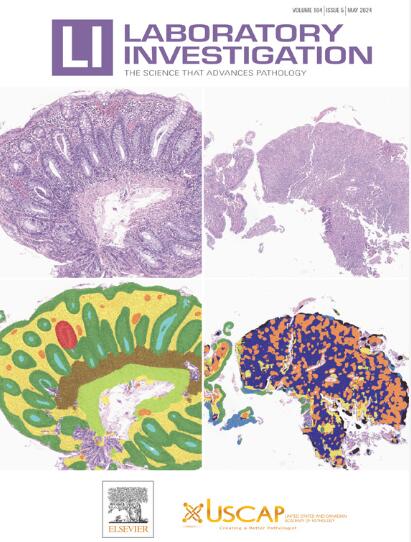Acid Sensor Acid-Sensing Ion Channel 1a Promotes Malignant Cell Proliferation Through the Transcription Factor 7/c-Myc Pathway in Liver Cancer
IF 4.2
2区 医学
Q1 MEDICINE, RESEARCH & EXPERIMENTAL
引用次数: 0
Abstract
The extracellular acidic microenvironment plays a pivotal role in driving tumor initiation and sustaining its malignant progression. Therefore, understanding its regulatory mechanism is crucial for the treatment of liver cancer. Acid-sensing ion channel 1a (ASIC1a) serves as the primary acid sensor, transmitting the extracellular low pH signal into the cell to initiate downstream signaling pathways. In this study, we have investigated the pathogenic role of ASIC1a in liver cancer and elucidated its molecular mechanism. Our findings suggest that ASIC1a facilitates the proliferation of liver cancer cells and enhances their malignant characteristics in the acidic microenvironment. Relevantly, this deleterious characteristic was notably repressed upon the inhibition of ASIC1a activity. Transcription factor 7 acts as a crucial mediator, transmitting the activation signals from ASIC1a to upregulate c-Myc expression, thereby promoting the proliferation of liver cancer cells. In conclusion, our results provide new insights into how the extracellular acidic microenvironment contributes to the advancement of liver cancer.
酸传感器ASIC1a在肝癌中通过TCF7/c-Myc通路促进恶性细胞增殖。
细胞外酸性微环境在驱动肿瘤发生和维持其恶性进展中起着关键作用。因此,了解其调控机制对肝癌的治疗至关重要。酸感应离子通道1a (ASIC1a)作为主要的酸传感器,将细胞外的低pH信号传递到细胞内,启动下游信号通路。在本研究中,我们研究了ASIC1a在肝癌中的致病作用,并阐明了其分子机制。我们的研究结果表明,ASIC1a促进了肝癌细胞在酸性微环境中的增殖,并增强了其恶性特征。与此相关,ASIC1a活性的抑制显著抑制了这一有害特性。转录因子7 (Transcription factor 7, TCF7)作为一个重要的中介,通过传递ASIC1a的激活信号,上调c-Myc的表达,从而促进肝癌细胞的增殖。总之,我们的研究结果为细胞外酸性微环境如何促进肝癌的进展提供了新的见解。
本文章由计算机程序翻译,如有差异,请以英文原文为准。
求助全文
约1分钟内获得全文
求助全文
来源期刊

Laboratory Investigation
医学-病理学
CiteScore
8.30
自引率
0.00%
发文量
125
审稿时长
2 months
期刊介绍:
Laboratory Investigation is an international journal owned by the United States and Canadian Academy of Pathology. Laboratory Investigation offers prompt publication of high-quality original research in all biomedical disciplines relating to the understanding of human disease and the application of new methods to the diagnosis of disease. Both human and experimental studies are welcome.
 求助内容:
求助内容: 应助结果提醒方式:
应助结果提醒方式:


